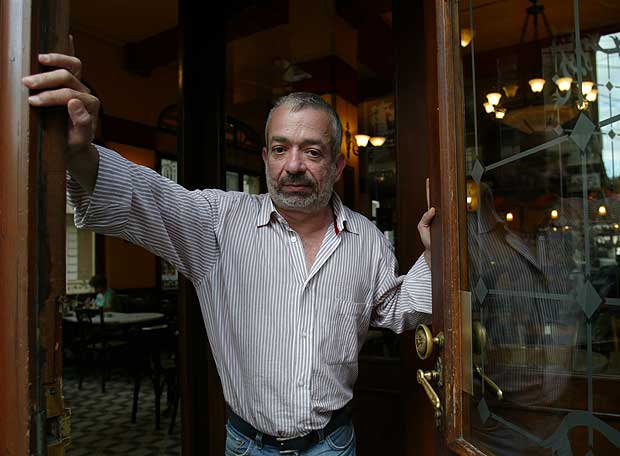The National, June 2013
>> It’s the time of year when filling long lazy days with a book seems both an indulgence and a completely natural state of affairs. Here’s a guide to the stories that should fill your summer
The beach reads
There have been plenty of big books published in the past few months to catch up on, including Khaled Hosseini’s And the Mountains Echoed, Lauren Weisberger’s sequel to The Devil Wears Prada, unimaginatively called Revenge Wears Prada, and Beatriz Williams’ A Hundred Summers – which even has a beach on its cover.
But to look completely up to date, pack Curtis Sittenfeld’s Sisterland. A study of twin sisters who are able to see future events and the secrets of others, it might sound ridiculous but this is just the backdrop to a much deeper narrative about the trials of family life.
Beach reads are all about escapism, so flee to Tudor Britain with Philippa Gregory’s The White Princess (August). The first book in this best-selling saga, The White Queen, is a current BBC television adaptation, so Gregory is clearly on trend.
Staying in the past, albeit a more recent one, The First Rule of Swimming by Courtney Angela Brkic is an intriguing continent-crossing story of a woman who leaves a Croatian island for New York to find her missing younger sister, only to find her quest opens dark secrets about her family history. If light relief is needed, turn to the debut by Kathy Ebel, Claudia Silver to the Rescue. Ebel is a television exec and the hit series Girls is a clear influence.
The literary
Summer doesn’t have to be all about beach reads. Start with the posthumous novel of the late, lamented Iain Banks: The Quarry is a fiery exploration of a man dying of cancer, watched through the eyes of his autistic teenager. Incredibly, Banks apparently didn’t know when he wrote it that he had succumbed to cancer himself and this is an important, indignant novel.
Banks, of course, also wrote science fiction, which is the genre to which Margaret Atwood returns for MaddAddam (August), the third book in her post-apocalyptic series which began with the Booker-shortlisted Oryx and Crake.
Back to more obviously current concerns. The Woman Upstairs by another Booker nominee, Claire Messud, is fascinating stuff, the tale of a woman in her 40s who becomes obsessed with the seemingly perfect life of a Lebanese family.
But the summer buzz in literary circles surrounds Marisha Pessl’s suspenseful Night Film (August), in which a detective is pulled into the cursed family of a reclusive horror movie director. Spooky.
Page-turners
Stephen King’s new crime novel Joyland is certainly one of the publishing events of the summer: a retro pulp thriller published only in print by a small independent. It means this wonderfully enjoyable murder mystery set in an amusement park is hard to get hold of, but any book tagged “who dares enter the funhouse of fear?” clearly deserves attention.
If you’re curious to discover accessible new writing, try, er, The Curiosity, by debut novelist Stephen Kiernan (July). It’s an intriguing premise – a man frozen for 100 years wakes up in contemporary America and becomes an instant celebrity, quickly falling in love but knowing that his time on Earth is slipping away.
For guaranteed entertainment in crime writing, Ruth Rendell offers the 24th instalment in her DCI Wexford series, No Man’s Nightingale in August. It begins when the daughter of an Indian immigrant is found strangled in a vicarage. Finally, for pure storytelling craft, check out Jeffery Deaver’s crime thriller The Kill Room – he told The National recently that if someone takes a week or more to read his books, he’s done something wrong. Page-turner indeed.
The reality
Not everyone wants a summer read to transport them into a fictional world. The Great Tamasha by James Astill (July) is the perfect example of a book which can intrigue and delight as much as the latest thriller: the story of modern India told through one of its most lucrative displays of wealth, cricket’s Indian Premier League.
The National previously spoke to Philip Hoare for his previous award-winning book on whales, and The Sea Inside is a similarly personal journey of discovery about what makes water so magical, taking in everywhere from the south coast of England to Australia and Sri Lanka.
Finally, David Peace’s Red Or Dead (August) is a book which straddles the line between fact and fiction. It was a trick he pulled off to great effect with his study of football manager Brian Clough in The Damned United, and Peace returns to the beautiful game with this ruminative exploration of the famous Liverpool manager, Bill Shankly.


